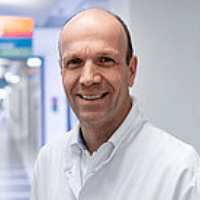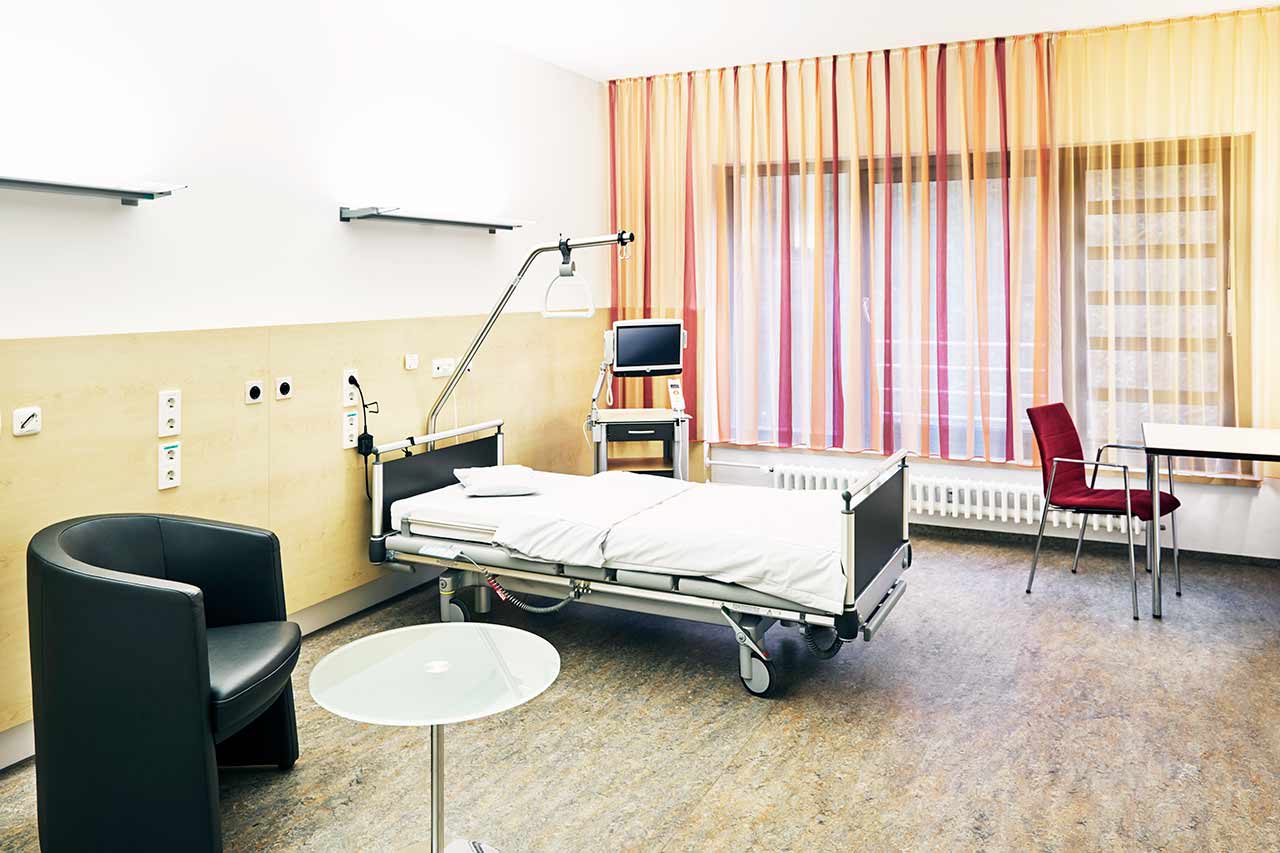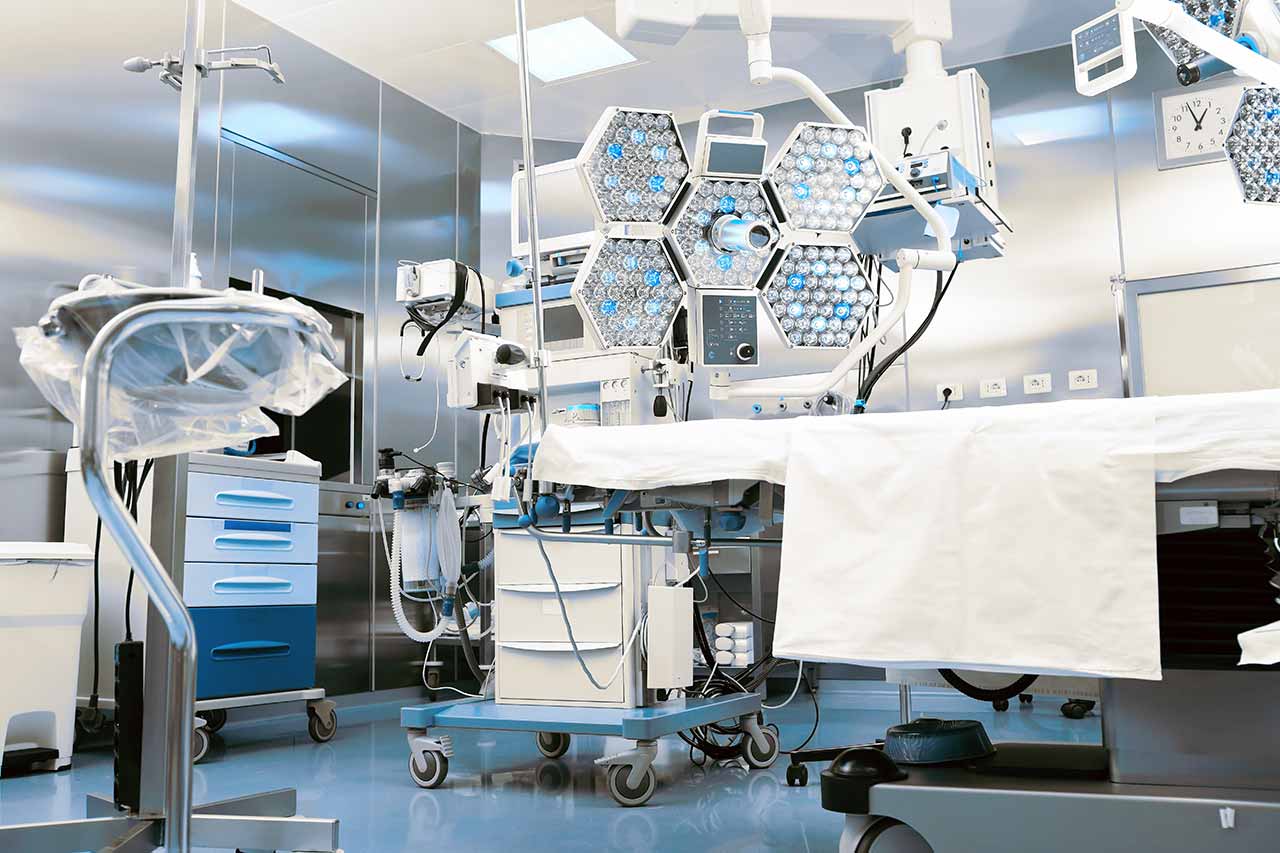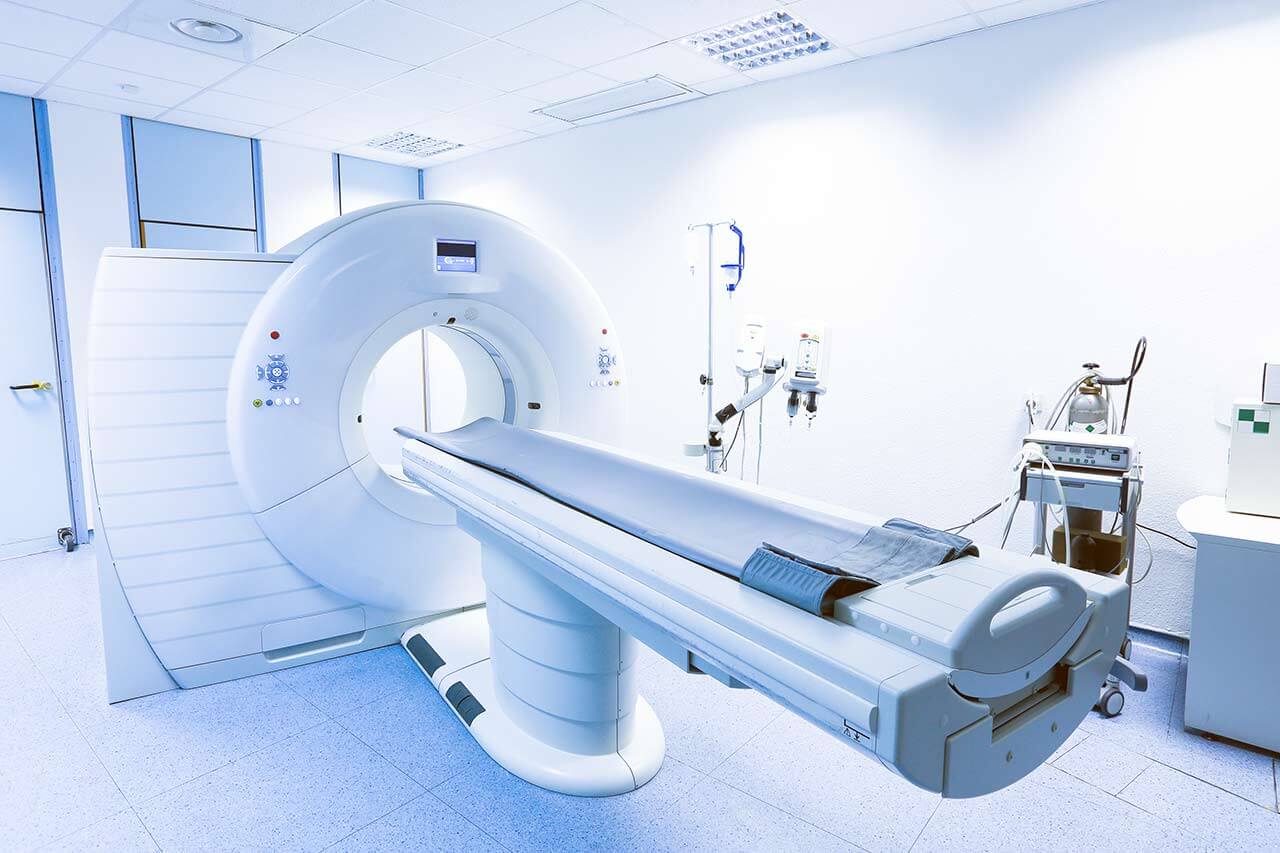
The program includes:
- Initial presentation in the clinic
- clinical history taking
- physical examination
- review of medical records
- laboratory tests:
- complete blood count
- general urine analysis
- biochemical analysis of blood
- TSH-basal, fT3, fT4
- tumor markers
- indicators of inflammation (CRP, ESR)
- indicators blood coagulation
- ultrasound
- CT/MRI scan
- preoperative care
- micrographic surgical treatment of facial skin melanoma
- histologically and immunohistochemically
examination of the remote tissues - symptomatic treatment
- control examinations
- the cost of essential medicines and materials
- nursing services
- full hospital accommodation
- explanation of future recommendations
Required documents
- Medical records
- Biopsy results (if available)
Service
You may also book:
 BookingHealth Price from:
BookingHealth Price from:
About the department
The Department of Dermatology, Allergology and Venerology at the Hospital Kassel offers the full range of modern diagnostic tests and effective therapeutic procedures for the treatment of skin diseases, allergic skin manifestations, as well as sexually transmitted diseases. The department is one of the five largest Dermatology Clinics in Germany, so patients can count on the high quality treatment using cutting-edge medical advances. The department's doctors successfully apply conservative and surgical treatments, as well as use state-of-the-art laser systems for the treatment of skin pathologies. One of the department's priority focuses is skin cancer treatment, which is provided within a specialized center. The department treats over 3,700 inpatients and about 10,000 outpatients every year. The department has 82 beds for inpatient treatment. The team of dermatologists working in the medical facility is distinguished by high professionalism and an individual approach to each patient, which allows the doctors to achieve the best treatment results. The department is headed by Prof. Dr. med. Rainer Rompel.
The surgical treatment of dermatological diseases is at the highest level in the department. The surgical treatment methods for skin diseases are most often required for patients with benign and malignant skin neoplasms, congenital and acquired skin defects, as well as inflammatory skin lesions. The doctors of this medical field also specialize in cosmetic procedures for the elimination of varicose veins, pigment spots, including age spots, scars and the consequences of accidents. Prior to the operation, the department's dermatologists thoroughly study the patient's medical history and prescribe the necessary set of diagnostic procedures, according to the results of which they develop the optimal treatment tactics, taking into account not only medical factors, but also the aesthetic aspect.
The most important structural unit of the department is the specialized Skin Cancer Center. The patients with skin cancer receive optimal treatment in accordance with current international protocols, based on the latest medical and scientific advances. Skin cancer is one of the most common types of oncology in the world and every year the number of patients with this pathology grows. The department carries out early diagnostics and prevention of all types of skin cancer. During the diagnostics, the department's specialists use standardized skin cancer screening, epiluminescence microscopy, lymph node ultrasound, photodynamic examinations, radiography, CT and MRI scans. After receiving comprehensive diagnostic results, an individual treatment regimen is developed at an interdisciplinary tumor board. Depending on the stage, localization and aggressiveness of the tumor, the doctors may appoint a surgical intervention for tumor resection, alternative non-surgical methods (for example, photodynamic therapy, cryosurgery, radiation therapy), drug treatment, or several types of treatments combined for maximum efficiency. In most cases, the patient has to undergo chemotherapy, radiation therapy, immunotherapy or targeted therapy after surgery. The department also provides qualified psycho-oncological care, since such a diagnosis can cause a serious emotional shock for patients and their loved ones, provoke depressive states in the patient, which prevent the achievement of a successful treatment outcome.
The department also includes the Emergency Care Unit, which admits patients with urgent dermatological conditions, such as acute drug and anaphylactoid reactions, acute skin infections, etc. All therapeutic procedures are carried out by a highly professional medical team with long clinical experience.
The department specializes in the diagnostics and treatment of the following diseases:
- Benign and malignant skin diseases
- Eczema
- Psoriasis
- Severe allergic skin reactions
- Different types of acne
- Congenital skin diseases and skin lesions caused by metabolic disorders
- Skin keratinization disorders and connective tissue diseases
- Vesicular dermatitis
- Infectious skin diseases
- Inflammatory skin diseases
- Allergic diseases of the skin and upper respiratory tract
- Occupational skin disorders
- Congenital and acquired skin defects
- Skin pigmentation disorders
- Venous disease (focus on varicose veins) and leg ulcers
- Sexually transmitted diseases
- Other diseases
The therapeutic options of the department include:
- Conservative treatment methods
- Conservative treatment methods for benign skin diseases
- Treatment of psoriasis using biologicals
- Systemic treatment of chronic inflammatory skin diseases
- Differentiated dermatological local therapy
- Phototherapy (UVA and UVB therapy, local and systemic PUVA therapy, balneo PUVA therapy)
- Hyperhidrosis treatment (curettage of the subcutaneous sweat glands)
- Iontophoresis
- Laser procedures
- Conservative treatment methods for malignant skin diseases
- Immunotherapy, including the use of checkpoint inhibitors
- Targeted therapy, including the use of BRAF inhibitors and MEK inhibitors
- Photodynamic therapy
- Cryosurgery
- Chemotherapy and polychemotherapy
- Immunotherapy, chemoimmunotherapy
- Intralesional
- Radiation therapy
- Treatment within clinical trials of innovative therapies
- Psycho-oncological care
- Conservative treatment methods for benign skin diseases
- Surgical treatment methods
- Dermabrasion
- Laser ablation
- Micrographic surgery of malignant skin tumors
- Plastic surgery with free and local flaps
- Sentinel lymph node dissection
- Operations under tumescent local anesthesia
- Surgical treatment of axillary hyperhidrosis (excessive sweating)
- Miniflebectomy and stripping for varicose veins
- Surgical treatment of trophic leg ulcers
- Laser surgery, electrosurgery and cryosurgery
- Other treatment methods
Photo of the doctor: (c) Klinikum Kassel
About hospital
The Hospital Kassel is a progressive medical facility with a huge medical team, which provides high-quality medical services in all branches of modern medicine. The hospital is part of the regional medical Gesundheit Nordhessen Holding, which unites 5 top-class medical centers, including specialized rehabilitation clinics. With 1,281 beds, the hospital is known as the largest medical complex in the federal state of Hesse. The hospital has 32 specialized departments with highly qualified doctors and specially trained nursing staff in each department. The team of 3,200 employees takes care of the health of patients. The main value for each employee is the patient's health. The professional skills of the medical staff in combination with state-of-the-art medical and technical equipment of the hospital provide excellent opportunities for the treatment of patients with pathologies of any severity.
The hospital provides treatment to over 55,000 inpatients and about 140,000 outpatients every year. Medical care is provided to both German citizens and many patients from foreign countries. Such high rates are the evidence of excellent quality of medical services and the high credit of patients' trust.
The hospital has created a wonderful atmosphere, which contributes to the rapid recovery of patients. All diagnostic and therapeutic rooms, operating rooms, as well as patient rooms are designed taking into account modern standards of European medicine in order to ensure maximum comfort of each patient. All employees working in the hospital provide the patient with understanding and respect, as well as support him in every possible way during the entire therapeutic process.
The hospital successfully implements a quality management system. It uses its own quality management system implemented by the medical Gesundheit Nordhessen Holding, as well as the IQM (Initiative Qualitätsmedizin) monitoring system. As part of healthcare quality management, the hospital annually clearly provides reports on its clinical activities, the success of diagnostics, treatment, level of patient care, etc. Thus, the hospital stands for maximum openness in its work and makes every effort to maintain the highest level of quality of medical care.
Photo: (с) depositphotos
Accommodation in hospital
Patients rooms
The patients of the Hospital Kassel live in comfortable single, double and triple rooms. The patient rooms are made in a modern design and pastel colors. A standard patient room includes an automatically adjustable bed, a bedside table, a wardrobe, a table and chairs for receiving visitors, a TV and a telephone. The patient rooms have Wi-Fi. Each room has an ensuite bathroom with shower and toilet.
The hospital also offers enhanced-comfort patient rooms. Most of these rooms have a balcony. The bathroom additionally includes a hairdryer, towels and toiletries.
Meals and Menus
The patient and the accompanying person are offered tasty and balanced three meals a day. If for some reason you do not eat all foods, you will be offered an individual menu. Please inform the medical staff about your food preferences prior to treatment. The patients staying in enhanced-comfort rooms are provided with an individual menu every day.
The hospital also has several cafes where one can have a cup of tea or coffee, taste delicious pastries, salads, main hot dishes, pizza, etc.
Further details
Standard rooms include:
Religion
The religious services are available upon request.
Accompanying person
During the inpatient program, the accompanying person can live with the patient in a patient room or a hotel of his choice. Our managers will help you choose the most suitable option.
Hotel
During an outpatient program, the patient can stay at the hotel of his choice. Our managers will help you choose the most suitable option.





